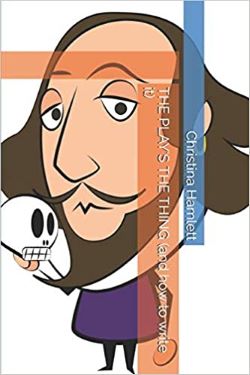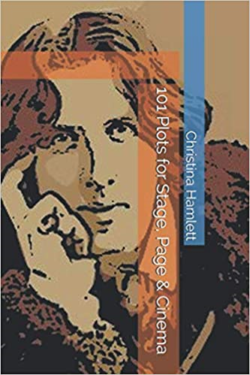As with many industries across the country and around the world, theater was dealt a devastating blow with the escalation of COVID. With actors unable to rehearse plays, producers unable to fill their performance spaces and audiences deprived of live entertainment experiences, it seemed that it wasn’t just Broadway that would go dark indefinitely.
While it hasn’t stopped my fellow playwrights from penning scripts during lockdown, it has changed how we’re channeling our creative energies to stay relevant. One such way to do this is by writing monologues — an aspect of playwriting that has long existed but, most recently, has achieved an exciting new level of viability. Solo performances can not only be used as audition pieces for demo reels but also produced as Zoom presentations, live-streaming, and socially distant tableaus. Are actors and directors gobbling them up? You bet!

WHAT MAKES A GREAT MONOLOGUE?
A monologue is a one-person show which needs neither sets, costumes nor props to deliver its point. It’s a story told in first person and spoken to the audience, spoken to an unseen listener or delivered as a soliloquy. Though monologues can tap any genre or historical period, the best ones are those whose messages embody timeless themes which will resonate with contemporary viewers. Further, a great monologue should embrace a wide spectrum of emotions to challenge an actor’s skill sets. The most marketable monologues are in the 10-15 minute range, primarily because these can subsequently be clustered with similar-length pieces to comprise a full evening’s entertainment. Also popular—especially with the teen market—are monologues that can be performed by either gender.
WHAT A MONOLOGUE ISN’T
Novice playwrights often confuse monologues with stand-up comedy, political rants, or rambling confessionals. While these may appeal to an actor’s peer group, today’s play publishers are more interested in works that are sensitive, clever, thought-provoking, and yield “Aha!” twists and surprises. I also caution writers against monologues that involve excessive yelling, frenetic pacing, and hurling expletives from start to finish. These devices get old after—oh, the first two minutes.
PAST OR PRESENT
My own monologues tend to be a mix of contemporary themes (i.e., homelessness, abortion, dysfunctional relationships, peer pressure) and “what-ifs” drawn from the pages of history (i.e., what if Jack the Ripper was actually a woman, what if Anne of Cleves actually sent her lady-in-waiting as Henry VIII’s next bride). The secret to crafting a monologue that feels authentic is to ask yourself what topics you’re passionate about and then invest in the research to bring them to life. Keep in mind, too, who your target audience is. A high school crowd, for instance, may not be savvy enough to catch all the subtleties of life in the past lane, nor would a Christian publisher warm to a monologue about witchcraft.
WHO’S BUYING?
As with any professional submissions, it’s critical to familiarize yourself with the kinds of monologues each play publisher seeks. They prefer query letters over script submissions, and these can be done via email.

Here’s a list of some of my favorites:
Silver Birchington, UK
https://www.silverbirchingtonplays.com/
Children, Teens, Adults
PLAYS, the Magazine for Young People
https://www.playsmagazine.com/
Lower, Middle and Upper Grades
Pioneer Drama Service
https://www.pioneerdrama.com/
High School
Heartland Plays
https://www.pioneerdrama.com/
Children, Teens, Adults
Brooklyn Publishers
https://www.brookpub.com/
Teens, Adults
Although a subscription service, I also encourage playwrights to check out Play Submissions Helper at https://playsubmissionshelper.com/. This resource provides contact information for theater companies and publishers around the world seeking plays of all lengths (monologues included!) as well as information on playwriting competitions.
Frustrating as it is to see our beloved livelihood on hold for the immediate future, there’s one thing we can all take heart in. Theater—for better or worse—has never been shy about reinvention. The show will definitely go on—even if it’s one person at a time.
BIO: Former actress and director Christina Hamlett is an award-winning authors whose credits to date include 44 books, 236 stage plays and squillions of articles and interviews. Visit her website at www.authorhamlett.com.
Smith Scripts (UK) publishes monologues. I have 3 collections published with them.
Vivian C. Lermond